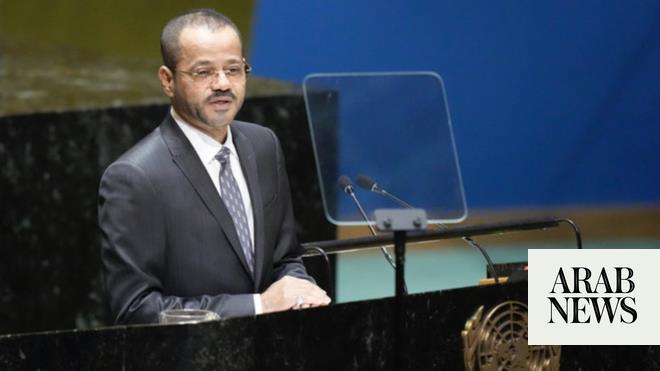
There was something symbolic about Sudan’s decision to follow the UAE and Bahrain in normalizing relations with Israel. After all, it was in Khartoum in 1967 that the Arab League declared the “Three Nos,” pledging no peace, no negotiations with and no recognition of the Jewish state.
More than 50 years later, with Washington’s less than subtle nudging, Khartoum has recognized the value of normal and open relations with Israel. The US has rewarded Sudan by removing it from the list of countries sponsoring terrorism, enabling access to enjoy international loans and investment, desperately needed after the devastation left by the years of Omar Bashir’s rule.
But in the complex strategic moves on the regional chessboard, there is grave concern for the 6,000 or so Sudanese asylum seekers and refugees in Israel, who in the wake of the normalization agreement may be sent back to Sudan to face a dangerous and uncertain future. Despite escaping war and persecution, they were never welcomed with open arms in Israel; worse, they have been suffering from discrimination, abuse and vile incitements, including from senior politicians. For certain, it would be wrong to vilify or single out Israel alone on this issue, as the rejection and ill-treatment of innocent victims fleeing domestic and international conflicts is sadly far from confined to one country. However, two wrongs do not make a right, and wherever and whenever countries reject asylum seekers whose life could be in danger if returned, it should be brought to the court of public opinion.
If any country should empathize with the plight of asylum seekers, it is surely Israel. For those of us who are the sons and daughters of Holocaust survivors, this feeling of moral obligation toward those who suffer from persecution is even more powerful. We understand and are scarred by the lack of empathy, and worse, the absence of practical attempts to save our families when they needed it most. Moreover, the support shown by the international community in the aftermath of the Second World War for the establishment of a Jewish state derived from a strong sense of the need to rectify the world’s immoral and heartless indifference to the plight of millions of Jews who faced genocide under the Nazi regime.
A combination of guilt and shame led to a recognition of the urgent need for a haven from any future persecution, as well as for Jewish people to be able to express and practice their religion, culture and national aspirations. It shouldn’t take a genocide on the scale of the Holocaust for countries to feel obliged to help desperate people fleeing from mass murder, war and other forms of persecution.
While the normalization agreement between Sudan and Israel is a positive development for both countries, it far from guarantees the safety and wellbeing of the Sudanese in Israel should they be sent back.
Yossi Mekelberg
So, given the history of its people, it is not far-fetched to expect Israel to show more compassion to those in such dire circumstances. But it would be unrealistic for Israel, due to its size and special circumstances, to deal with a mass influx of an indefinite number of asylum seekers from the world’s war zones. This is something for the international community to work together to address, in accordance with the 1951 Refugee Convention and its 1967 Protocol, to both of which Israel is a signatory. The fundamental principal of these international commitments, signed by 149 states, is non-refoulement, which asserts that a refugee should not be sent back to a country where they face a serious threat to life and freedom. To ignore this core principle, which is now considered a rule of customary international law, is not only a violation of international legal obligations, but means sending people to potential incarceration, torture and even death.
Most of the 55,000 African asylum seekers in Israel arrived from Eritrea and Sudan, having been smuggled over the border with Egypt after a long, arduous and dangerous journey across the Sinai Peninsula. Yet the Israeli government under Benjamin Netanyahu has continuously and persistently attempted to cut deals, first with Rwanda and Uganda and then the UN, to rid itself of African asylum seekers. Netanyahu also led the moves to delegitimize them, by calling them infiltrators who had arrived as economic migrants; all to appease his support base, which vehemently opposes letting non-Jewish migrants, let alone people of color, settle in the country.
At the beginning of 2018, the Israeli authorities first threatened to indefinitely incarcerate African asylum seekers should they refuse to return to Rwanda and Uganda, in a detention center in Israel’s southern Negev desert. When this inhuman plan was deemed disproportionate by the Israeli High Court, and prompted public protests, it was abandoned. Netanyahu then reached an agreement with the UN refugee agency to resettle 16,000 African asylum seekers in Western countries such as Germany, Italy and Canada. However, the agreement also entailed that around the same number would be allowed permanent residence in Israel, angering the far right, including those who were part of the government at the time. One of their leaders, Naftali Bennet, warned that the plan would “turn Israel into a paradise for infiltrators.” Netanyahu, who has always prioritized survival in power over abiding by agreements, performed an instant U-turn, and abandoned the agreement to appease his coalition partners.
While the normalization agreement between Sudan and Israel is a positive development for both countries, it far from guarantees the safety and wellbeing of the Sudanese in Israel should they be sent back. Human rights organizations are warning that even under the current Sudanese transition to democracy, forces have continued to use excessive and lethal violence and arbitrary detentions of activists, and intercommunal violence still prevails in Darfur and eastern Sudan.
Under these circumstances it would be criminally irresponsible to send the refugees back, at least until Sudan’s political situation can ensure their safety, and with international guarantees. It is not too much to expect of Israel that it follow the Talmudic imperative of Hillel the Elder: “Whatever is hateful and distasteful to you, do not do to your fellow neighbor. This is the entire Torah, the rest is commentary.”
Yossi Mekelberg is professor of international relations at Regent’s University London, where he is head of the International Relations and Social Sciences Program. He is also an associate fellow of the MENA Program at Chatham House. He is a regular contributor to the international written and electronic media. Twitter: @YMekelberg
Disclaimer: Views expressed by writers in this section are their own and do not necessarily reflect Arab News" point-of-view












